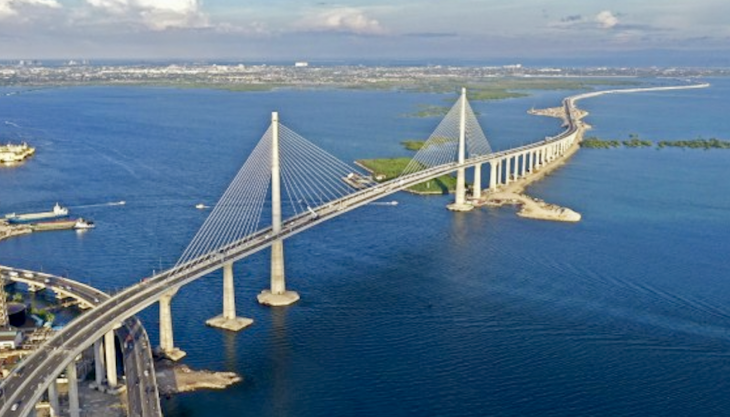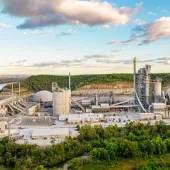CEMEX supply cement for Philippines’ longest bridge

Company sole provider of 70,000 tonnes of cement for 8.9km Cebu-Cordova Link Expressway
CEMEX revealed today that they were the sole supplier of cement for the construction of the longest bridge in the Philippines. The company supplied nearly 70,000 tonnes of cement for the construction of the Cebu-Cordova Link Expressway (CCLEX), a milestone project for the country.
CCLEX connects Cebu City to the municipality of Cordova on Mactan Island and spans a total of 8.9km, standing on twin tower pylons reaching 145m in height. The bridge, which opened to traffic earlier this year, is expected to provide a safer and more efficient route for approximately 50,000 vehicles each day, seeking to improve the quality of life for residents of the area.
‘CEMEX have been a proud contributor to the development of the Philippines for over a century, and our participation in CCLEX is further proof of our commitment to the country,’ said Luis Franco, president of CEMEX in the Philippines.
‘Projects such as this modernize the country and foster the well-being of its residents. Improving the quality of life of the citizens of our communities sits at the core of our purpose: to build a better future.’
In the Philippines, CEMEX partner with more than 20 public and private entities to support waste-management efforts, using waste that would otherwise go to municipal landfills or water systems as an alternative to fossil fuels at their cement plants.
The company’s Solid cement plant was recently recognized with the Award in Exemplary Operations in Small Scale Waste-to-Energy Operations by the Department of Environment and Natural Resources, whilst at their APO cement plant, CEMEX recently commissioned a 4.5MW heat-recovery facility that converts excess heat from the cement production process and converts it to electricity.
CEMEX say these efforts align with their Future in Action programme, which aims to reach carbon neutrality by 2050. By 2030, the company expects to reduce its carbon footprint in cement production globally by 40%.









